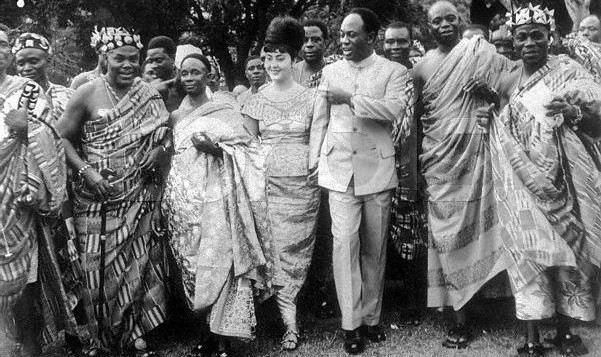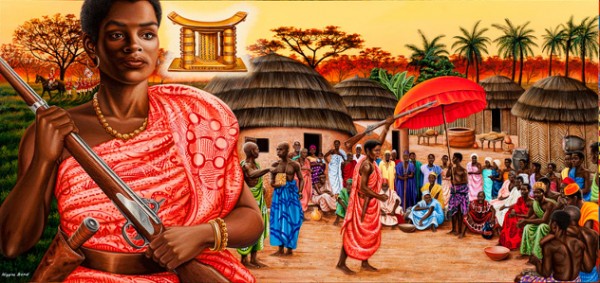A columnist of The Ghanaian Times, Mr. Collins Essamuah, has stated that ethnocentrism in Ghanaian politics is real but not dangerous to the country’s democracy.
He said though the Volta Regions and the Ashanti Regions remain the political “world banks” of the National Democratic Congress (NDC) and the New Patriotic Party (NPP) respectively, they have not by themselves guaranteed victory for either political party since 1992.
Mr. Essamuah spoke at a public forum on Elections and Ethnic Politics in Ghana organized by the management of Kofi Annan International Peacekeeping Training Centre (KAIPTC) in Accra.
The forum formed part of a series of lectures on ‘Reflections on Security’ at the centre to tackle sensitive national issues by politicians and commentators.
Mr. Essamuah claims that victory for either party since 1992 has been based rather on voting patterns in the Western, Central and Greater Accra Regions, which are melting pots of West African cultural forms and ethnic groups.
Mr. Essamuah concluded that ethnocentric politics in Ghana cannot be harmful thereof.
But, it is difficult to understand how one Essamuah logic leads to another. Clarifications have to be made.
It is no rocket science understanding the socio-political geography of Ghana. The Danquah-Busia tradition, which is the mainstay ideology of the NPP, has its political roots in Kumasi, the Ashanti Region (Asantes).
The ideology of the NDC however, is one that perhaps is still evolving but nonetheless still blends Nkrumahism with a belief in J.J. Rawlings’ Pragmatism. It is pre-mathematical understanding why this cornerstone concoction finds its most staunch following in the Volta Region where almost the whole region comprises of the Gbe people (amongst them, majority Ewes).
The fundamental question is why these two ethnic groups are pitched against one another in modern Ghanaian politics?
Before the advent of the modern political system in the country Ghana, the Gold Coast itself had been subject to a Dahomey (Gbe) verses Ashanti political tradition.
It is important to put into perspective that none of those struggles – be they economic or political – to dominate the West African Coast during the Trans-Atlantic-Slave Trade period, resulted in any meaningful socio-economic or political gain for the sub region.
Rather these two ‘elephants’ plundered the natural and human resources of West Africa – sold millions of slaves to Europeans to carry to the New World – and left our lands still recovering from the havoc in 2013. Have we recovered from that shameful history?
I think not.
Mr. Essamuah may think that the modern structure of democracy in Ghana is stable. And I can agree to a very general extent. However, even in the swing regions of Western, Central and Greater Accra, various populations of Ewes (or people loyal to them) and Asantes (or groups loyal to them) do political battle to carry those regions.
Furthermore, the ethnic affiliation of the presidential candidate himself has stood a great deal in determining which ethnic group votes for the NPP or the NDC.
Hence, the Ghanaian political climate may be stable, but only because the rest of Ghana, the Ga people, other Akan ethnic groups, Fantes, other Gbe ethnic groups, the Northerners in Ghana etc. perhaps, continue to play a major buffer between the two warring factions – Ewes and Asantes.
And though Ashanti may never return to its glory, nor Dahomey to its formidable war machinery, Asantes and Ewes in Ghana, I am afraid, still find this furtive zone to continue to do battle within Ghana’s political climate.
That is why the current political climate in Ghana cannot be conducive when we begin to understand its historical underpinnings.
If anything at all, we should all eschew ethnocentric politics, for it has not, and it will not move our dear country forward. That is in sum, Nkrumah’s stance not only on Ghana but on the whole African Union.
Ethnic politics is just another name for ethnic warfare without rifles and machetes. Carried to excess, it will be enough to cause people to do unto their sisters, brothers and friends what they would otherwise shun away from.
That is not to say that we must abandon ethnic dignity, ethnic culture and ethnic diversity. These things make us Ghanaians. We are Ghanaians because we have inherited some of the most industrious, however debatable, cultures from many ethnic groups.
If anything, that makes us culturally wealthy. And that wealth, harnessed in its most profound and pure forms can be pushed to ignite a revolution of unbiased politics in Ghana and forge forward the socio-economic development of all her people.











This is quite an insightful dichotomy of the Dahomey and Ashanti past and its effect on our beloved Ghana.
Good article. But on the issue of slavery, in traditional African society, the servant had rights, in many cases, he could even become an heir in the house.
Slavery is what the Arabs and the Europeans introduced rather violently on the continent. Slavery begun with slave raids perpetuated by the foreigners. It’s true that with time, some of our people began to collaborate with our enemies.
To be fair to Ashanti, its participation in the commerce of fellow Africans was minimal. On the other hand, the people of Dahomey, after getting rid of King Adannozan, who opposed this inhuman system and refused to participate in it, dealt massively in it. Kings like Glele, Guezo etc. made a lot of money by handing out their fellow Africans to foreigners.
But it is true that the Ashanti-Dahomey rivalry still plays out today, but funnily enough, Akyem which used to ask Dahomey for help against Ashanti is now a staunch ally of Ashanti. Anlo who used to be a staunch ally of the Akwamu and then Ashanti now sees itself as a defender of all Ewes in Ghana.
Great article!
@Yaw: You are right. And I will go further by saying that the current divisions in West Africa for example, along language group lines, have brought many nations to the brink of unnecessary war.
Ethnic grouping in Ghana, Togo, Benin, Nigeria etc. were based on many complex relations than the way we have accepted to be subdivided. We have to remember that these ethnic groupings are just as artificial as the modern countries of Ghana etc.
What we must begin to foster is a better understanding among the youth of our culture and maybe one day, Asantes and Ewes may just realize that their histories are co-mingled, intertwined and can never be separated form each other.
Maybe then, these two political parties, NPP & NDC will become more constructive in charting our own unique course in democratic Africa.
Thanks Kwame, great comment from you. If only more of our people knew this, imagine the great things we could achieve.
This is the first time I have seen honest discussions about how ethnic politics in Ghana is affecting development. Kudos!
Let me add that, Gas are equal culprits in this analysis – I don’t like to think of them as a buffer of the ethnic politics going on between the Asantes and the Ewes. Here is why – throughout history they have voted by majority along the lines of the Ewe (i.e the NDC). Of course the Ga are not far removed from the Gbe people – in some categorizations of language groups in West Africa, Ga has been called anything from Yoruba to Ewe.
So though Gas, in my opinion, like to think they don’t see eye to eye with Ewes, their political decisions and actions have proven otherwise. Wherever NPP wins in a Ga state, it has mainly been due to the influx of Akan groups, through the horrible land selling system, who have overwhelmingly voted for the NPP.
However, what I seem to admire about Gas is their constant refusal to admit that the side with the Ewes politically and in ordinary life that story may be true. But that only mimics the Fantes, who with their voting trends and how they feel, in everyday life, about Asantes still tend to vote for the NPP by and large unless of course a Fante is running for president.
Hence, some way somehow, language groups have come to dominate ethnic discourse so much that it is hard to imagine for example that Dangmes are more related to the Ewes than to Gas. And that is not to say that Gas are not as much related to the Ewes as much as the Fante!
I feel a thorough traditional education needs to be revived if Ghanaian politics is going to be more about issues than what language people speak and whether we can understand them or not.
As an outsider (i.e. Region 6 African) I am reading and realizing that the “Willy Lynch” disorder is a common disorder that is a legacy of the enslavement of African bodies and minds – disruption of culture and unity. Let some of you please read “Willy Lynch Letters” – if you have not already done so. You will see that the pink people are MASTERS of the DIVIDE-FRICTIONALIZE-CONQUER strategy. Their most POWERFUL weapons are education and religion. Continental Africans don’t truly KNOW the pink people because you seem to believe that “colonization” at home is different from “enslavement” via kidnapping. Historical Region 6 Africans have an in-depth knowledge of the pink people that our sisters and brothers on the continent would do well to avail yourselves of. Else, 50 years from now, your progeny will be engaged in the same discussions that your are now – some 50 years after your “independence”.